Share On Social!
Why is cancer the top cause of death for Latinos?
To unpack this question, Dr. Amelie G. Ramirez of Salud America! at UT Health San Antonio hosted the 4th biennial Advancing the Science of Cancer in Latinos conference on Feb. 21-23, 2024, in San Antonio, Texas.
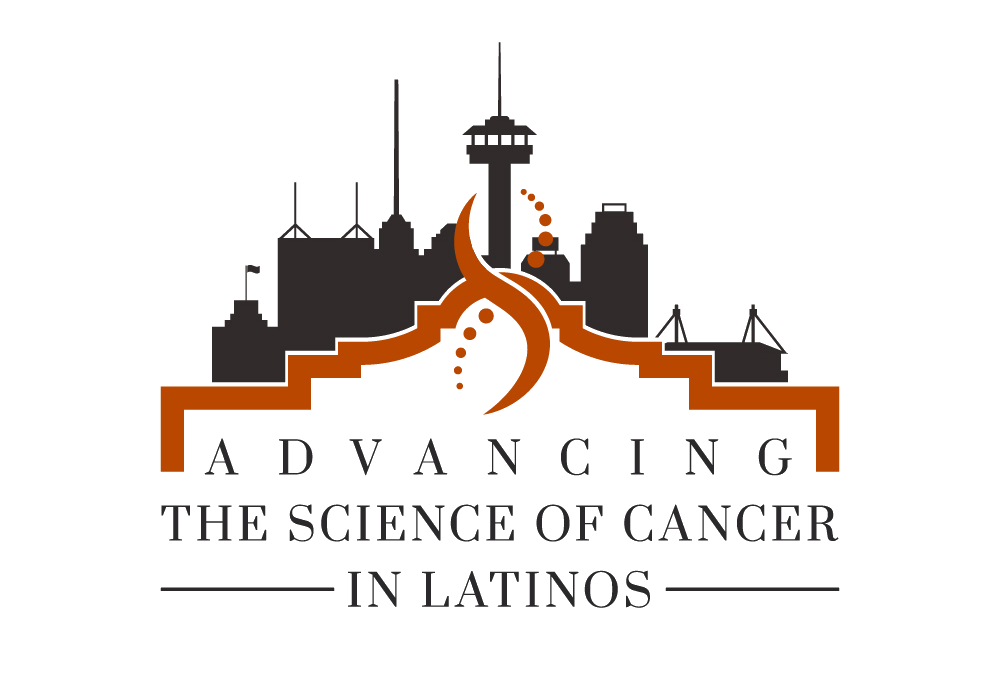 Advancing the Science of Cancer in Latinos drew 280 researchers, doctors, leaders, patient advocates, and students for an open dialogue on Latino cancer.
Advancing the Science of Cancer in Latinos drew 280 researchers, doctors, leaders, patient advocates, and students for an open dialogue on Latino cancer.
Discussion covered new research advances on clinical best practices, effective community interventions, system-change advocacy, and professional training to eliminate cancer disparities in Latinos.
“Advancing the Science of Cancer in Latinos is where we can come together and find equitable solutions for cancer prevention, treatment, and survivorship among Latinos,” said Ramirez, who founded the conference and directs UT Health San Antonio’s Institute for Health Promotion Research (IHPR) and Salud America!. The IHPR co-hosted the conference with the Mays Cancer Center.
Why Is Latino Cancer a Big Issue?
At 19.1% of the U.S. population, Latinos are the largest racial/ethnic group.
While leaders have made progress in cancer prevention, screening, and treatment over past decades, addressing cancer disparities has not kept pace.
Latinos face a 142% rise in cancer cases in the coming years. Cancer accounts for 20% of deaths among Latinos.
Read more about Latino cancer disparities.
What Is Advancing the Science of Cancer in Latinos?
The 2024 Advancing the Science of Cancer in Latinos conference is the newest in a biennial conference series that has attracted over 800 researchers and featured over 200 research posters with innovations in Latino cancer research, education, and training.
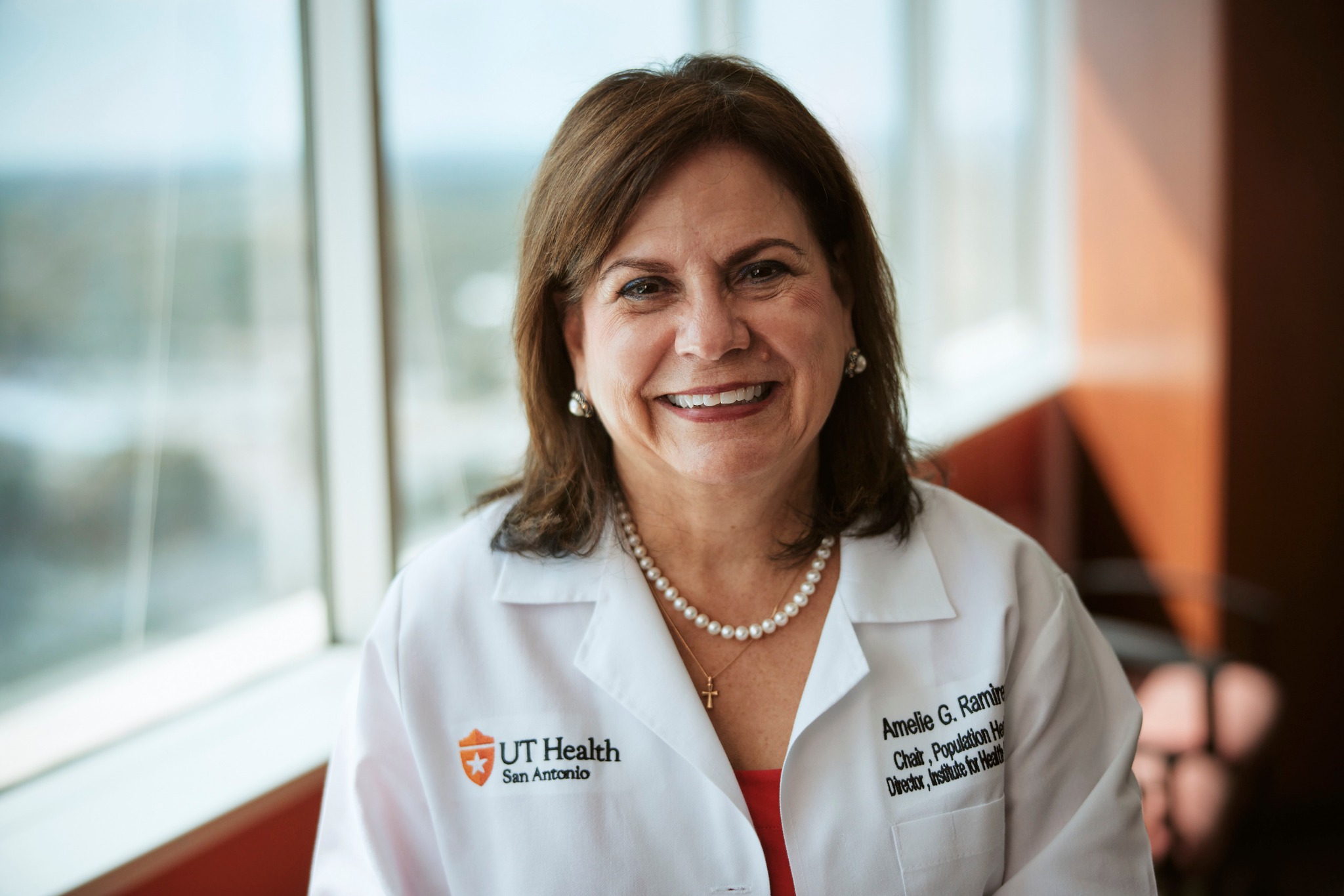
View the conference proceedings from 2018, 2020, and 2022 for details.
“Advancing the Science of Cancer in Latinos is where we come together and find equitable solutions for cancer prevention, treatment, and survivorship among Latinos,” Ramirez said.
Who Shared Research and Perspectives at Advancing the Science of Cancer in Latinos?
The 2024 Advancing the Science of Cancer in Latinos conference welcomed over 40 Latino cancer researchers, clinicians, and advocates.
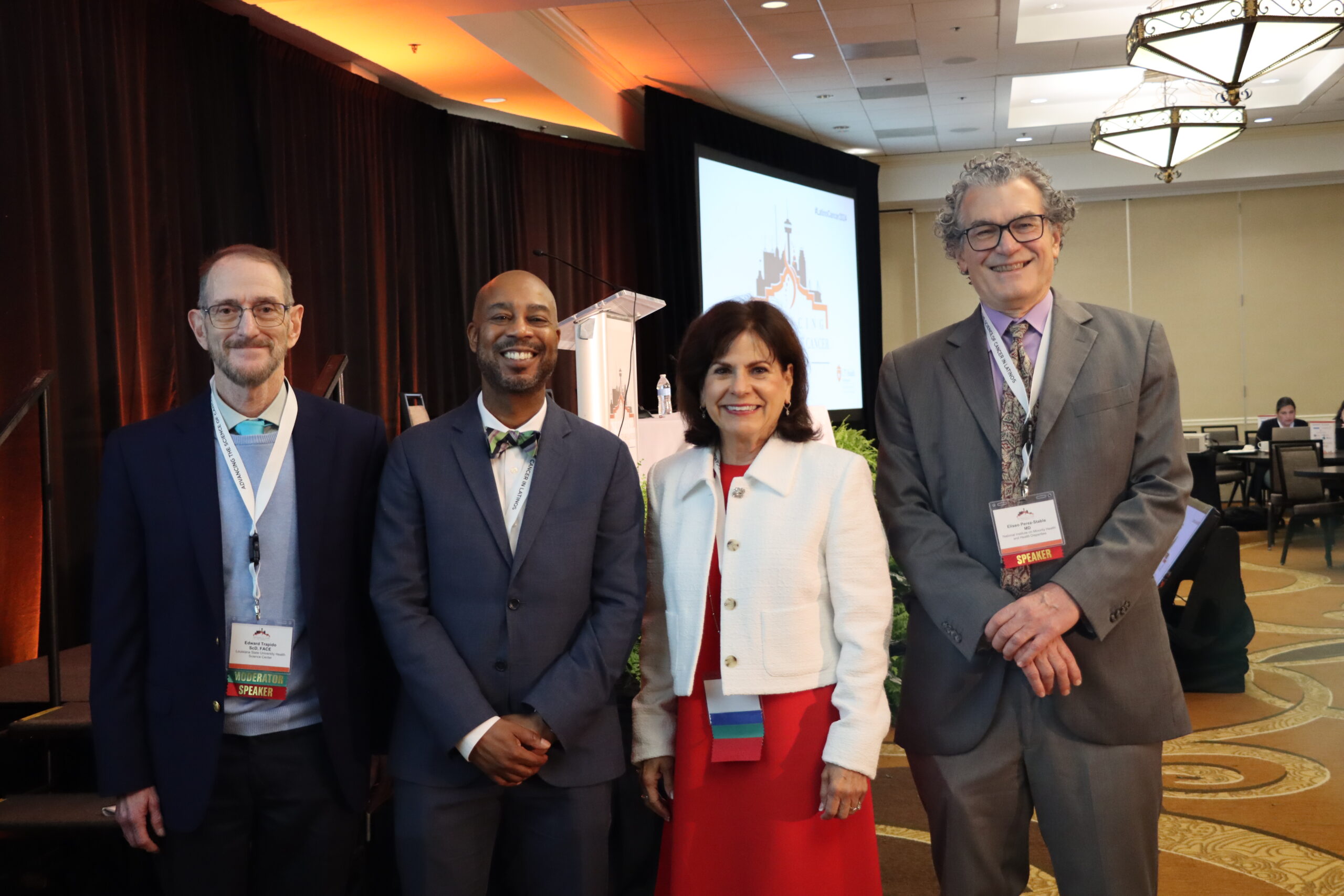
These included:
- Eliseo J. Pérez-Stable, National Institute on Minority Health and Health Disparities at the National Institutes of Health. He focused on individual and systemic solutions to address inequities among Latinos across cancer care.
- Gary L. Ellison, National Cancer Institute. He explored how climate change and natural disasters are disrupting cancer screening and treatment, especially for Latinos.
- Yolanda Sanchez, University of New Mexico Comprehensive Cancer Center. Sanchez, the first Latina to lead an NCI-Designated Cancer Center, talked about reducing the Latino cancer burden via transdisciplinary research.
- James H. Doroshow, National Cancer Institute. He delved into inclusiveness in clinical trial research.
- Shoba Srinivasan, National Cancer Institute. She explored ways to reduce poverty and cancer.
- Elena V. Rios, National Hispanic Medical Association. Rios, representing 50,000 U.S. Hispanic physicians, covered the public policy implications of Latino cancer.
U.S. Congressman Joaquin Castro, a cancer survivor, also shared a video message.
“Here’s what I’ve learned. Cancer doesn’t know what your politics are. Since my diagnosis I’ve met people from across the political spectrum who’ve been affected by it. People who’ve been brought together by some of the worst news that you can possibly get,” Castro said. “Cancer is a reminder that everyone should get the care they need … I resolve to do everything I can to make sure that cancer is on the minds of legislators everywhere.”
What Media Covered Advancing the Science of Cancer in Latinos?
Several media outlets covered the Advancing the Science of Cancer in Latinos conference.
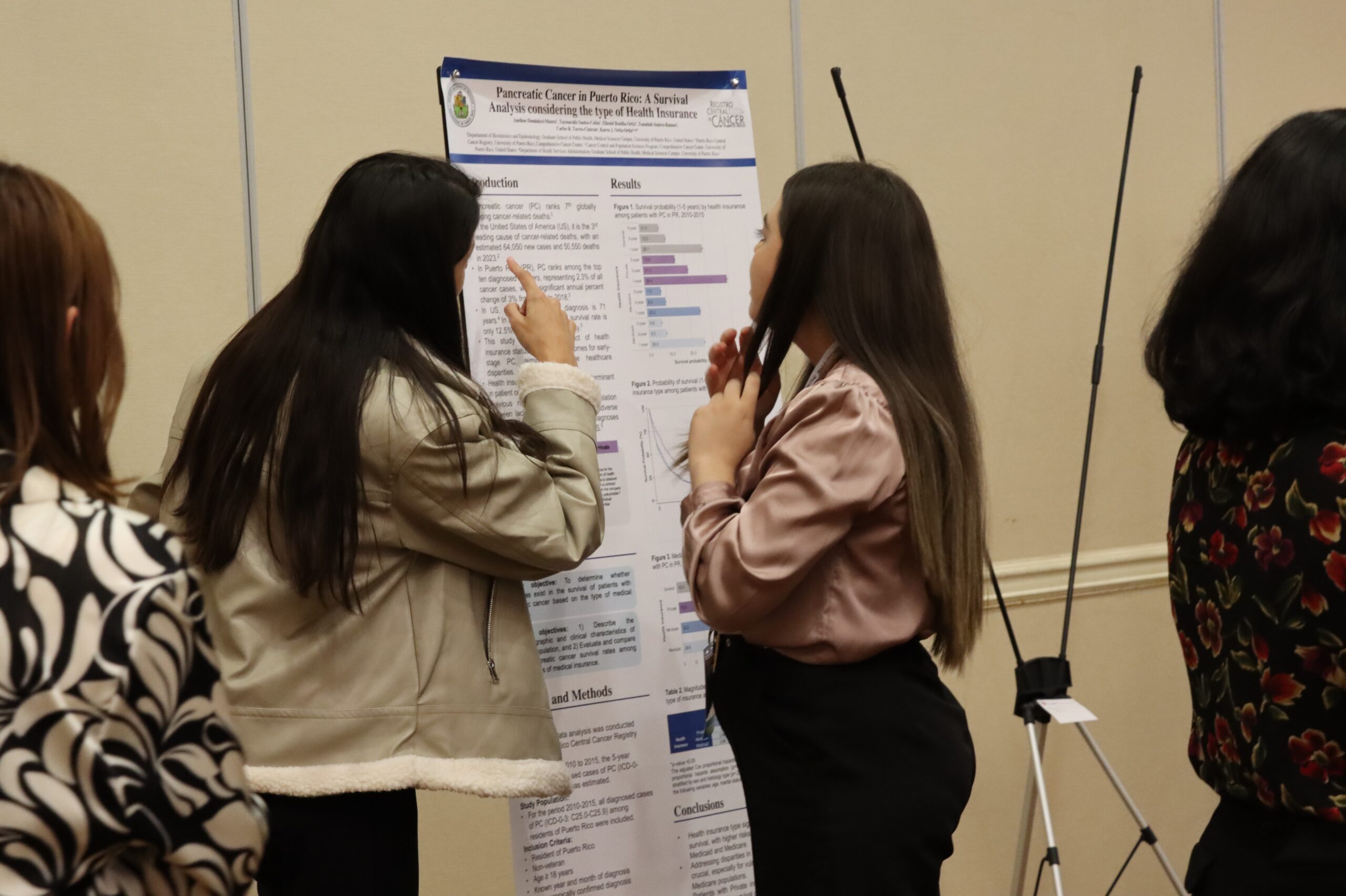
These include:
- San Antonio Express-News
- KENS-TV (San Antonio)
- KABB-TV (Fox San Antonio)
- WOAI-TV (News 4 San Antonio)
- Michael Board of News Radio 1200 WOAI (San Antonio)
- Sandra Gonzalez of Spectrum News
- Telemundo San Antonio
- Holly Wayment of the Pediatrics Now Podcast at UT Health San Antonio
- Cancer Today
- UT Health San Antonio new release
The conference hosted a research poster session, where 80 investigators shared their latest Latino cancer studies.
In addition, on Feb. 20, 2024, a day before the conference began, it hosted the first in-person meeting of the Latino Cancer Patient Advocate Training Program, which aims to help educate and empower the future of patient advocacy for the Latino community.
What Did People Say about Advancing the Science of Cancer in Latinos?
Speakers and attendees also used #LatinoCancer2024 on Twitter/X to drive new conversations on Latino cancer issues.
View all the tweets here. Here are some examples:
I thought I would share some thoughts and reflections after attending the Advancing the Science of Cancer in Latinos Conference #LatinoCancer2024 in San Antonio. @LatinxOncology @SaludAmerica
1) Patient advocacy for Hispanic / Latinos; there is a huge unserved need to care for…
— Fernando Diaz, MD (@FernandoDiazMD1) February 29, 2024
ASCL conference, it’s always a pleasure to reconnect with colleagues/friends, network, and have two of my research work presented! Proud to be surrounded in a community that’s supporting and push me through my career path. #LatinoCancer2024 @uscpphs @SaludAmerica @YASurvivors pic.twitter.com/whbmoOkeVn
— Carlos Orellana Garcia, MPH (@Carlos_OGarcia) February 23, 2024
What a treat to attend the 4th #LatinoCancer2024 conference in beautiful San Antonio, sharing our work from @uscnorris @USCCOPECC & @CaRE2HEC, meeting with friends & getting inspired to continue working to eliminate disparities among Latino populations! 🥰 pic.twitter.com/wmTgZ5ObVR
— Mariana Stern (@MarianaStern) February 24, 2024
Poster walkthrough at the #latinoCancer2024 conference w @grasp & amazing #cancerResearchers and Latino/a #patientAdvocates
Thank U @carolaTsanchez for research BC survivorship #Latina women @MariFrederick @rosemaryCarrera @anaisArriaga@itsnot_pink pic.twitter.com/nFdIB1PmOr
— Debbie Denardi (@debsetu) February 23, 2024
What a great experience! This conference showed a whole different view of cancer care and the disparities that we as Latinos endure. So much work to be done but having great partners along the way will make the road a joy! @itsnot_pink @barbarasegarra @SaludAmerica… pic.twitter.com/kHOdnu4QdR
— Marcela Mazo MD (@mazo_md) February 23, 2024
💫 @IvyRadOncMD sooo proud of you hermana!
Truly a person who puts words into action, puts in the work, and is an amazing mentor and role model for so many @LatinxOncology @LatinasInMed #LatinoCancer2024 https://t.co/4OtLRPN74Z— Ana I. Velázquez Mañana, MD MSc (she/her/ella) (@AnaVManana) February 23, 2024
Also my first time at #LatinoCancer2024 glad to run into @IvyRadOncMD and meet many patient advocates and researchers committed to improving outcomes for ALL patients. https://t.co/QKSITLkQXg
— Maria Garcia-Jimenez, MD MHS (@mariagjMD) February 22, 2024
A wonderful survivorship panel at #LatinoCancer2024. Son una inspiración para nosotros! pic.twitter.com/lPXkAAurLt
— Fernando Diaz, MD (@FernandoDiazMD1) February 22, 2024
Day 1 at #LatinoCancer2024 is full of many great sessions this afternoon. pic.twitter.com/HEj90yC1EQ
— Carol Y. Ochoa-Dominguez (@ochoa_cy) February 21, 2024
What Is Next for Advancing the Science of Cancer in Latinos?
Later this year, Ramirez and her team will publish a proceedings report to summarize the progress made at the 2024 Advancing the Science of Cancer in Latinos conference.
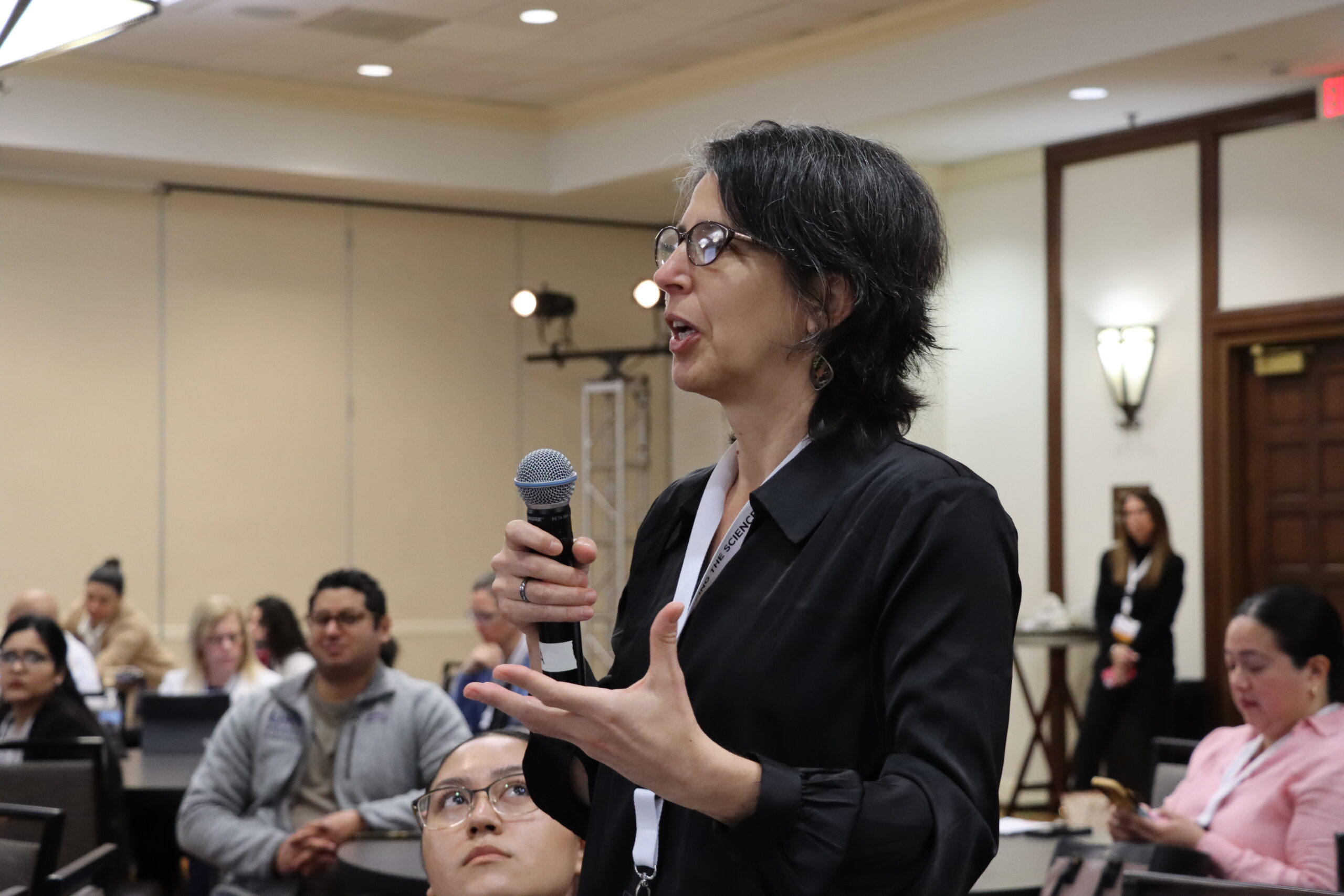
Ramirez thanked the conference planning committee:
- Edward J. Trapido, ScD, FACE, Louisiana State University (co-chair)
- Barbara Segarra-Vázquez, DHSc, MT, University of Puerto Rico
- Alejandro Recio Boiles, MD, FACP, University of Arizona
- Maria Constanza Camargo, National Cancer Institute
- Filipa C. Lynce, MD, Harvard University
- Gerardo Colon-Otero, MD, Mayo Clinic, Florida
- Katherine Y. Tossas, PhD, Virginia Commonwealth University
- Laura Fejerman, PhD, MSc, University of California, San Francisco
- Mariana C. Stern, PhD, University of Southern California
- Martin Mendoza, PhD, Director of Health Equity, All of Us Research Program
- Matthew P. Banegas, PhD, MPH, University of California, San Diego
- Patricia I. Moreno, PhD, Miami University
- Sandi Stanford, Alamo Breast Cancer Foundation
Ramirez also thanked the conference sponsors:
- Amgen, AstraZeneca, Bristol Myers Squibb, Genentech, Gilead (platinum)
- GMaP Region 3, Loxo@Lilly, National Cancer Institute, Pfizer, Regeneron (silver)
- Arizona Comprehensive Cancer Center, Sylvester Comprehensive Cancer Center, UCSD Moores Cancer Center in partnership with UCSD Center for Health Equity Education, VCU Massey Comprehensive Cancer Center (amigos)
Also, the conference will return in 2026, Ramirez said.
“We are going to continue to shine a spotlight on Latino cancer research advancements, explore new frontiers and gaps, and build on new collaborations,” Ramirez said. “We want to make things better for our families, our friends, our communities composed of diverse Latino populations.”
By The Numbers
142
Percent
Expected rise in Latino cancer cases in coming years



